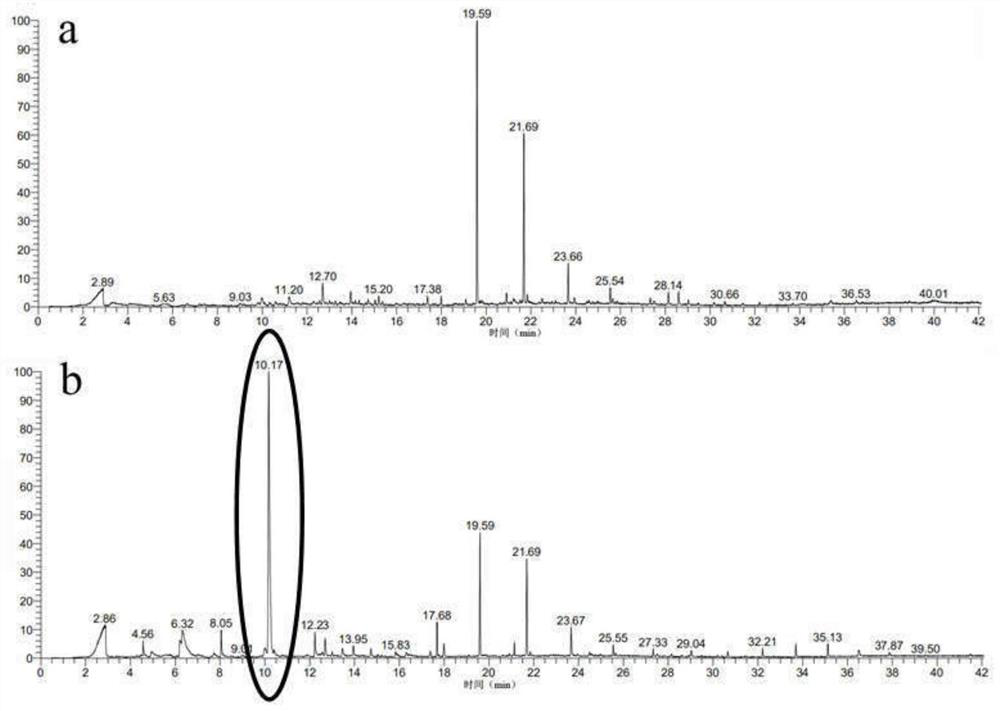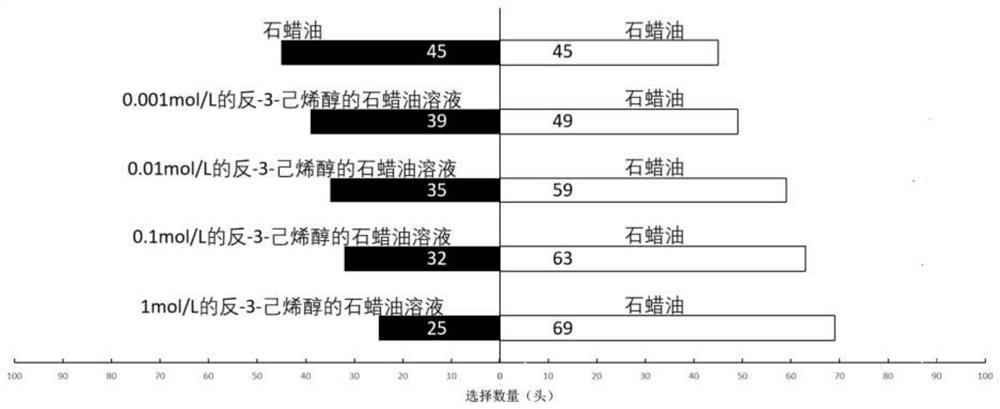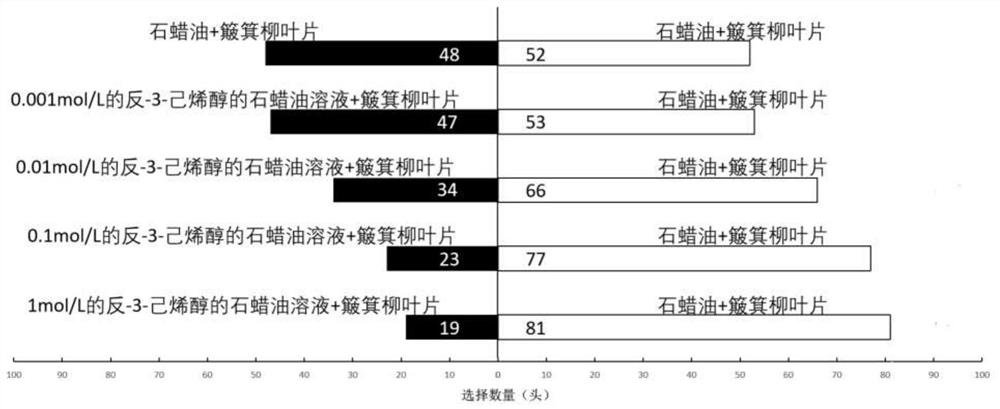A method for preventing and controlling willow blue leaf beetle adults and the repellant used therefor
A technology of willow and blue leaves, applied in the direction of pest control, animal repellent, botanical equipment and methods, etc., can solve the problems of low pertinence, threat to human health, damage to the environment, etc., and achieve good economic and social benefits , good practical application value and broad application prospects
- Summary
- Abstract
- Description
- Claims
- Application Information
AI Technical Summary
Problems solved by technology
Method used
Image
Examples
Embodiment 1
[0024] Pick 5g each of fresh willow leaves and willow leaves, and place them in 50mL extraction bottles for extraction. The specific operation process is as follows: the top of the bottle is sealed with plastic wrap, and the solid phase microextraction head 65 μm PDMS / DVB manual solid phase microextraction head (Supelco) is used for adsorption. The extraction bottle is placed in a constant temperature water bath at 40°C for 40 minutes. The solid-phase microextraction head was treated at 250°C for 3 minutes for desorption treatment, and the obtained substances were analyzed by GC-MS respectively. Analysis results such as figure 1 shown. Depend on figure 1 It can be seen that the retention time of the difference substance is 10.17min. By comparing the compound database, the compound represented by this peak is trans-3-hexenol.
Embodiment 2
[0026] Under the condition of not feeding on leaves, the selectivity determination of the adults of the willow leaf beetle to the repellant and the control:
[0027] The concentration of the paraffin oil solution of the repellant trans-3-hexenol includes 0.001, 0.01, 0.1 and 1 mol / L.
[0028] The preparation method of the above solution: first prepare 1mol / L paraffin oil solution of trans-3-hexenol: add 5mL of trans-3-hexenol into an empty 50mL centrifuge tube, dilute to 50mL, shake and mix well . Then use a pipette gun to take out 1mL, 0.1mL and 0.01mL of the prepared 1mol / L paraffin oil solution of trans-3-hexenol respectively and add them to the above-mentioned empty centrifuge tube, and set the volume to 10mL to prepare 0.1, 0.01 and 0.001mol / L paraffin oil solution of trans-3-hexenol.
[0029] test methods:
[0030] 1. The long arm of the Y-shaped olfactometer is 10cm long, the two short arms are 6cm long, the angle between the two arms is 75°, the diameter is 1cm, and...
Embodiment 3
[0036] Determination of the selectivity of the adults of the willow leaf beetle to the repellant and the control under the condition of feeding on leaves
[0037] Salix indigo beetle eats the leaves of Dustpan willow seriously. Compared with Example 1, in this example, the leaves of Dustpan willow that Salix indigo beetle likes to eat were added to the repellant and the control group, and the selectivity was determined.
[0038] The concentrations of repellants used include: 0.001, 0.01, 0.1 and 1 mol / L trans-3-hexenol in paraffin oil.
[0039] The preparation method of the above solution: first prepare 1mol / L trans-3-hexenol paraffin oil solution: add 5mL trans-3-hexenol to an empty 50mL centrifuge tube, set the volume to 50mL, shake and mix uniform. Then use a pipette gun to take out 1mL, 0.1mL and 0.01mL of the prepared 1mol / L paraffin oil solution of trans-3-hexenol and add them to the above-mentioned empty centrifuge tube, and make the volume to 10mL to make 0.1mol / L , ...
PUM
 Login to View More
Login to View More Abstract
Description
Claims
Application Information
 Login to View More
Login to View More - R&D
- Intellectual Property
- Life Sciences
- Materials
- Tech Scout
- Unparalleled Data Quality
- Higher Quality Content
- 60% Fewer Hallucinations
Browse by: Latest US Patents, China's latest patents, Technical Efficacy Thesaurus, Application Domain, Technology Topic, Popular Technical Reports.
© 2025 PatSnap. All rights reserved.Legal|Privacy policy|Modern Slavery Act Transparency Statement|Sitemap|About US| Contact US: help@patsnap.com



